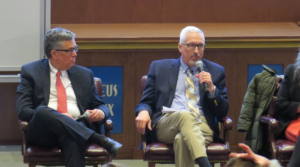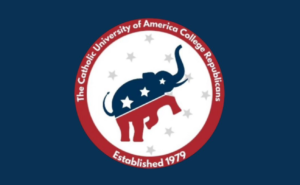Pope Francis Allows Vatican Archives on the Holocaust to be Opened

Courtesy of Our Sunday Visitor
By Alexander Santana
Beginning March 2, 2020, the Vatican will allow researchers and historians to view documents held in its archives concerning Pope Pius XII and the Roman Catholic Church’s efforts to combat the Holocaust during World War II, years before scheduled. Over the decades Pope Pius XII has been accused of not doing enough to condemn the killing of over six million Jewish men, women, and children under Adolf Hitler’s Nazi Germany. Others say the Pope secretly aided Jews during the war.
British author Gordon Thomas had been given access to Vatican documents showing that Catholic priests were ordered to issue certificates of baptism for hundreds of Jewish people in Italy and over 2,000 Hungarian Jews were given documents by the Vatican identifying them as Catholics. The documents also show that more than 4,000 Jews were sheltered in Catholic convents and monasteries across Europe and funds were appropriated to provide Jewish refugees with food, medicine, and clothing. Thomas’ book, The Pope’s Jews: The Vatican’s Secret Plan to Save Jews from the Nazis, describes the Pope’s secret efforts to protect Jews and his preference for diplomacy.
Many are applauding Pope Francis for allowing researchers to view these documents in 2020. Normally documents like these are not opened to researchers until over 70 years after a pope’s death. Pope Pius XII died in 1958 so the documents would not have been made available until possibly 2028. In a recent speech to employees of the Vatican Archives at a commemoration of the 80th anniversary of Pope Pius XII’s election to the papacy, Pope Francis said “The Church is not afraid of history; rather, she loves it, and would like to love it more and better, as God does! So, with the same trust of my predecessors, I open and entrust to researchers this documentary heritage.”
Some members of the Catholic Church in the United States praised Pope Francis’ decision. “I am grateful to His Holiness for taking this welcome step and allowing scholars to examine the records of Pope Pius XII’s pontificate during the Second World War,” said Cardinal Timothy M. Dolan, Archbishop of New York City and member of the Board of Trustees of Catholic University. Dolan also serves as co-chair of the U.S. Conference of Catholic Bishops’ (USCCB) dialogue with the National Council of Synagogues. “I pray it will bring about a new era in which Catholic and Jewish scholars, who have deepened their trust and friendship, can continue working together to examine this important new material.”
Another aspect of this decision is the ongoing process of Pope Pius XII’s canonization. The Pope was declared a Servant of God in 1990 and Venerable in 2009 by Pope John Paul II and Pope Emeritus Benedict XVI. Normally, a person is beatified after the Congregation for the Causes of Saints attributes two miracles to his or her intercession. In recent years there had been criticism of canonizing Pius XII by some members of the Jewish faith and others because of his unwillingness to vocally speak out against Hitler and the genocide of millions of Jews across Europe.
Catholic University’s Visiting Assistant Professor, Dr. Zion Evrony, served as Israel’s Ambassador to the Vatican from 2012 to 2016 and had some comments on Pope Francis’ announcement and its effect on Jewish-Catholic relations. “The Pope’s announcement is good news that we have been waiting for and he should be commended for his decision. Pope Francis is a true friend of the Jewish People and his decision to open the archives will have a positive effect on Jewish-Catholic relations,” he said.
Sara J. Bloomfield, the director of the U.S. Holocaust Memorial Museum in Washington, D.C., also had some thoughts on the announcement. “Since the end of World War II, scholars, Holocaust survivors, and others have asked important questions about the role of the Vatican and Pope Pius XII during the Holocaust,” she said. “It is long overdue for speculation to be replaced by rigorous scholarship, which is only possible once scholars have full access to all of these records. This is important for the sake of historical truth, but there is moral urgency too: we owe this to the survivor generation, which is rapidly diminishing.”
In his speech at the Vatican Apostolic Palace Pope Francis described how he came about his decision to open the archives. “I have assumed this decision after hearing the opinion of my closest collaborators, with a serene and confident mind, sure that serious and objective historical research will be able to evaluate, in the proper light and with appropriate criticism, the praiseworthy moments of the Pontiff and, without any doubt, also moments of serious difficulties, of tormented decisions, of human and Christian prudence, which to some might have seemed to be reticence, and which instead were attempts, humanly also very hard-fought, to keep the flame of humanitarian initiatives lit during periods of more intense darkness and cruelty, of hidden but active diplomacy, of hope in possible good openings of hearts,” he said.
“Opening the archives will contribute significantly to the research on the historical facts regarding Pope Pius the12th and the Vatican during World War 2 and the Holocaust” added Dr. Evrony. “Examining the documents of that era will help shed light on an issue that has been a source of disagreement between the Vatican and the Jewish People.”








